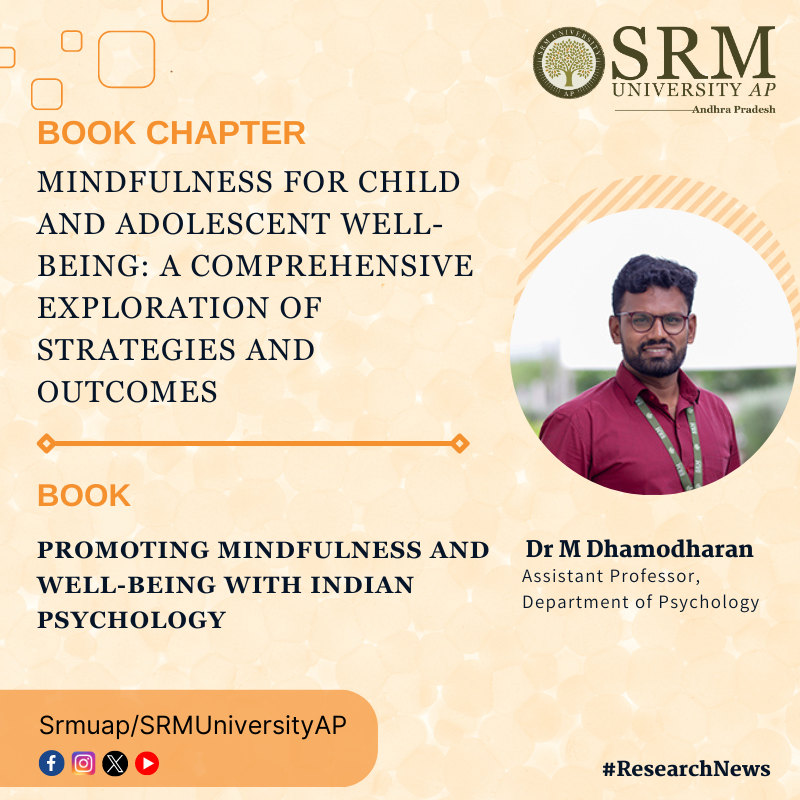
Mindfulness has emerged as a pivotal aspect in the domain of mental health, especially in the context of children and adolescents’ well-being. It refers to an inherent ability to be fully present in the moment, enabling an individual to gain an acute sense of awareness without any biases. Such a state of mindfulness empowers individuals to navigate the ups and downs of life with clarity and composure. Dr M Dhamodharan, an Assistant Professor in the Department of Psychology, has published a book chapter titled “Mindfulness for Child and Adolescent Well-Being: A Comprehensive Exploration of Strategies and Outcomes,” where he has comprehensively explored the intricacies of mindfulness and its impact on children and adolescents.
Here’s an abstract of the chapter published in the book, “Promoting Mindfulness and Well-Being with Indian Psychology.”
About the book chapter
The chapter examines the significant impact of mindfulness on children and adolescents. Mindfulness is the mental state defined by greater concentration, consciousness, and focus on the here and now, free from judgment. This chapter starts with the theoretical background of mindfulness and the current developments of mindfulness related to children’s and adolescents’ wellbeing. There are three main domains focused on mindfulness. Begin with emotional domains—that explains how mindfulness helps to regulate emotions. Secondly, cognitive domains explain how mindfulness practices help cognitive development and academic performance in educational settings. Thirdly, social and interpersonal domains explain the uses of mindfulness to improve social skills and interpersonal relationships with peer groups, family, and society. The chapter concludes with the role of parental and educational institutions in promoting mindfulness among children and adolescents to create a positive impact on their lives.
Dr Dhamodharan’s book chapter is targeted at Educators, parents, counsellors, and mental health specialists who stand to gain invaluable insights from the exploration of mindfulness within these pages.

